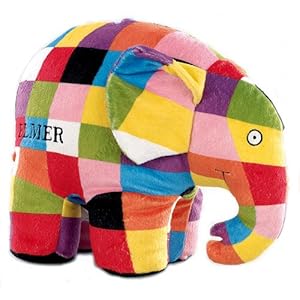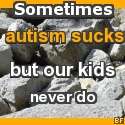 I am bringing over my articles from Examiner, in the hopes that they may help or give you information you need or were not aware of. I start with dyslexia, because my son has it, and now we think my youngest may, as well. So it is a subject I know a bit about.
I am bringing over my articles from Examiner, in the hopes that they may help or give you information you need or were not aware of. I start with dyslexia, because my son has it, and now we think my youngest may, as well. So it is a subject I know a bit about.
See if this sounds like your child:
He is very bright, but doesn't meet his potential. It takes him longer to do his homework then you think it should. His penmanship is messy, floating either above or below the line. His spelling is almost indecipherable, vowels are almost nonexistent. He is behind in reading and/or math, has had extra help and his academics just aren't improving.
If this sounds like your child, you might want to check out dyslexia.Dyslexia is not recognized by many school districts, and chances are you will be told it is a "medical diagnosis" that the school isn't prepared to make. They may instead guide you to remediation for the individual areas in which your child is behind. This may work. But understand if dyslexia is the problem, it is not just merely an academic issue. It is a question of how your child's brain works to process information. Language is processed differently; Broca's area, responsible for speech production, and Wernike's area, responsible for understanding spoken language, have neurons connected differently. the Right Hemisphere of the brain is 10% larger. So there are actual physical differences with dyslexia. This can cause sequences, such as a reciting the alphabet, counting or rote memorization such as multiplication tables to be very difficult. It isn't the child, it's his brain.
Most parents are under the impression that a child with dyslexia will have trouble with spelling, and that's true. But there are so many more symptoms. The most common and publicized symptom is reversal of letters, but not for the reason most think. The child doesn''t see the word backwards. Due to their visual processing problem, that is often present with dyslexia, the child sees the word the right way, but writes or reads it wrong. Don't panic, if your child reverses letters early as they are learning to read and write. Many children do this. The concern would be if the reversals continue past the first couple of years.
Some other symptoms include:
- * oral language (stuttering)
- * articulation issues (trouble with L's, R's, M's and N's, S, sh, ch)
- * auditory processing in how many sounds held onto
- * significant auditory discrimination problems
- * phonemic awareness problems
- * reading difficulty (in processing language with his eyes)
- * writing difficulty (language with hands, penmanship)
- * trouble tying shoes
- * difficulty with left & right
- * difficulty sounding out new words
- * can read a word fine on a page, then turn the page and not recognize it
There is no hard and fast test for dyslexia. But if your child has some of these symptoms, you may want to pursue help from an educational psychologist. Or, you can treat the symptoms with some coping skills. I am working on a pst about the various interventions available for the treatment of dyslexia. Stay tuned!
For more information:
Overcoming Dyslexiabright solutions
T, who says reversals and reading problems are the tip of the iceberg
photo copyright Tina Cruz![Reblog this post [with Zemanta]](http://img.zemanta.com/reblog_e.png?x-id=458987ee-3dc4-4d03-83a8-a12649e81824)


![Reblog this post [with Zemanta]](http://img.zemanta.com/reblog_e.png?x-id=085aaec7-e0c0-433d-b7fb-600c040cdafc)


![Reblog this post [with Zemanta]](http://img.zemanta.com/reblog_e.png?x-id=764110ee-77b6-436b-96fc-655c4167356b)


![Reblog this post [with Zemanta]](http://img.zemanta.com/reblog_e.png?x-id=c06864c2-7013-43ac-96be-dce2b5dc3b72)
![Reblog this post [with Zemanta]](http://img.zemanta.com/reblog_e.png?x-id=071fc83f-5731-49aa-a279-8362d5c12944)


![Reblog this post [with Zemanta]](http://img.zemanta.com/reblog_e.png?x-id=b1a5b073-aa52-4619-ab63-b6ac9d0a3bd6)





![Reblog this post [with Zemanta]](http://img.zemanta.com/reblog_e.png?x-id=14ce7e7d-baa7-4c75-87d6-91e75fd26ca3)



![Reblog this post [with Zemanta]](http://img.zemanta.com/reblog_e.png?x-id=76c9d2e8-f7fc-4657-9d90-def3339ed138)
































